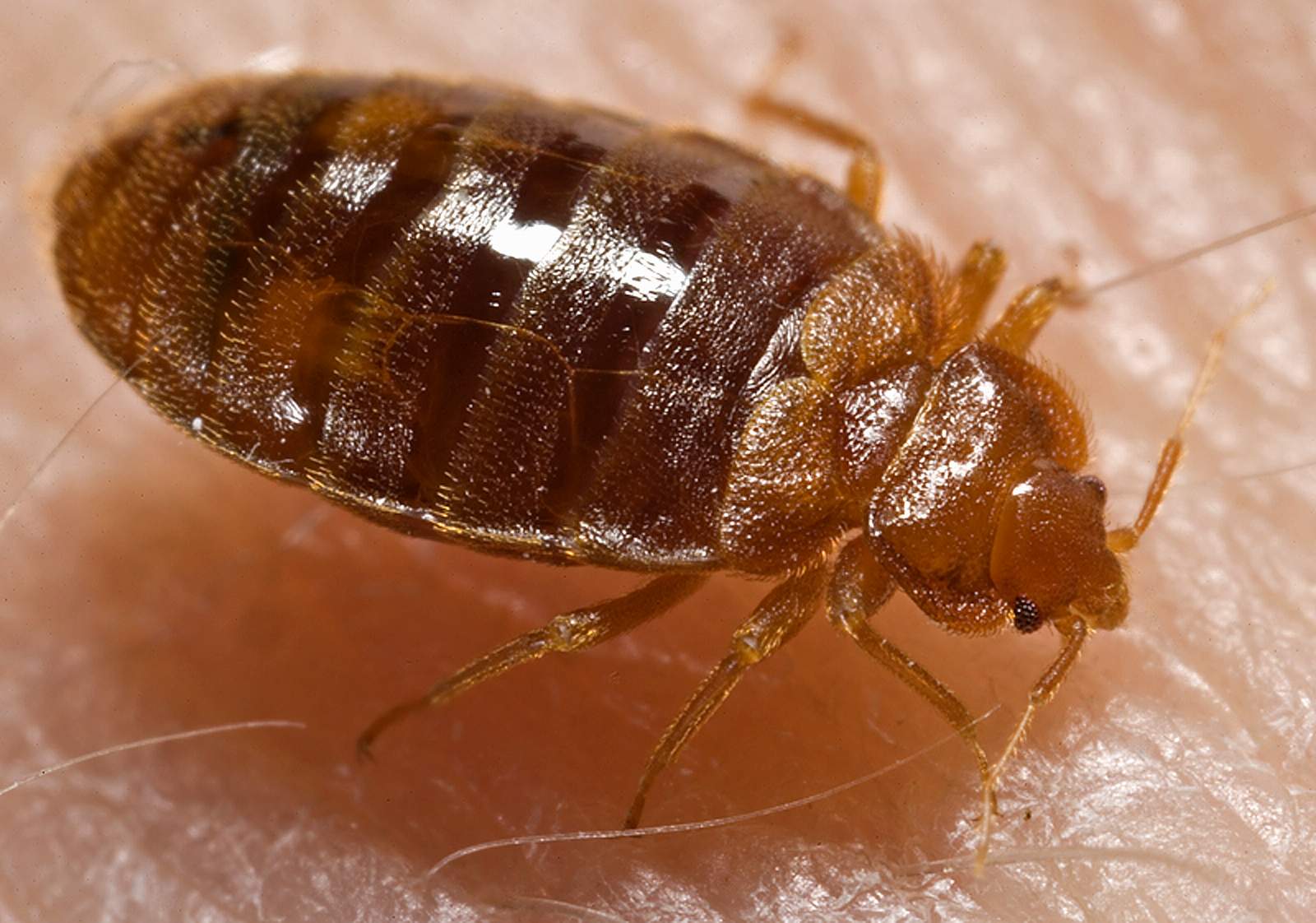Bed bugs (Cimex lectularius) are small parasites that feed on blood of humans and animals. These tiny wingless insects are clear to reddish brown in color and inject an anesthetic and an anticoagulant that prevents you from realizing you are being bitten as the bedbugs feed on your blood while you are sleeping.
FAQ's
What do bed bugs look like?
Adult bed bugs are approximately 1/4″ long and are red-brown in color. They are similar to the size, shape and color of an apple seed except that they are very flat (if they have not eaten). They have very thin legs and antennae and have no wings. Immature bed bugs are similar to adults, except that they are smaller and are a lighter yellow-brown in color.
Where are bed bugs found?
Bed bugs are found throughout the world. They are closely associated with people and can live wherever people spend a lot of time, such as hotels, dorms, homes, apartment buildings, long term care facilities, schools and hospitals. Bed bugs are concentrated in areas where people sleep. Their flattened body shape allows them to hide in small nooks and crannies in the bed, the furniture where people may sleep, or areas very close by such as baseboards, electrical outlets, and even inside appliances.
How do I know if I have been bitten by bed bugs?
In many cases you will not immediately realize that you have been bitten. The bed bug injects an anesthetic and an anticoagulant that prevents you from realizing that you are being bitten while they are feeding on your blood. Bite marks do not always appear, or are not always recognized. When bed bug bite marks do appear, it is often 1 – 14 days after you have been bitten. Bite marks typically appear as slightly swollen and irritated or itchy red bumps similar to a mosquito bite.
How do I know if I have bed bugs?
Usually, bites are the first sign of a bed bug infestation. Keep in mind, however, that there are other causes of welts and itching. People would do well to verify suspected bed bug bites by inspecting closely for the presence of the bugs themselves or the tell-tale signs that bed bugs leave behind.
Use a flashlight to examine cracks and crevices where bed bugs may hide. Look closely for bugs in the sheets, or along the mattress seams, folds or in cracks in the bed frame. If a bug is found, place it in a small bottle and have an expert look at it to confirm that it is a bed bug. Signs of bed bug feeding also include tiny bloodstains or marks on the bed clothing, sheets, or mattresses. Often bed bugs will excrete a small droplet of blood after feeding. Look in or along mattress seams or other cracks and crevices on or near the bed for evidence of these dark fecal specks. Usually these occur where you might find live bugs or shed skins of bed bugs (cast skins).

How do bed bugs spread?
Bed bugs are excellent hitchhikers. They can easily move from an infested building to a new site as people move. The recent resurgence of bed bugs is due in large part to international travel. Bed bugs hitchhike on luggage or on personal items or clothing and can move from one country to another in a very short period of time. Within a community, bed bugs can spread when people move infested possessions into a new apartment or home. Purchasing infested, second-hand beds or other furniture has been shown to accelerate local outbreaks of bed bugs. Once inside a building bed bugs can move between rooms or apartments by walking or crawling via hallways, or by squeezing through tiny cracks in common walls, ceilings, or utility ports.
Do bed bug bites spread disease?
According to the CDC, bed bugs are not known to spread disease. Bed bug bites can cause itching, loss of sleep, and an increased chance of secondary skin infection. Additionally, the signs of bed bug bites range from nothing to small bite marks to an allergic reaction which could require medical attention.
Why is it important to catch an infestation early?
One female bed bug can lay over 500 eggs in one month. As you can imagine, it does not take long for a relatively minor bed bug infestation to turn into a major one. The faster you react, the easier (and cheaper) it will be for a pest control company to eliminate the problem.
Why should I use an "Independent" bed bug inspector?
An independent bed bug inspector is not affiliated with an extermination service and therefore has nothing to gain by selling you additional services. This means that you can rest easy that you are not being sold additional services based on detection of bedbugs by an inspector who earns additional commission if bedbugs are found.
